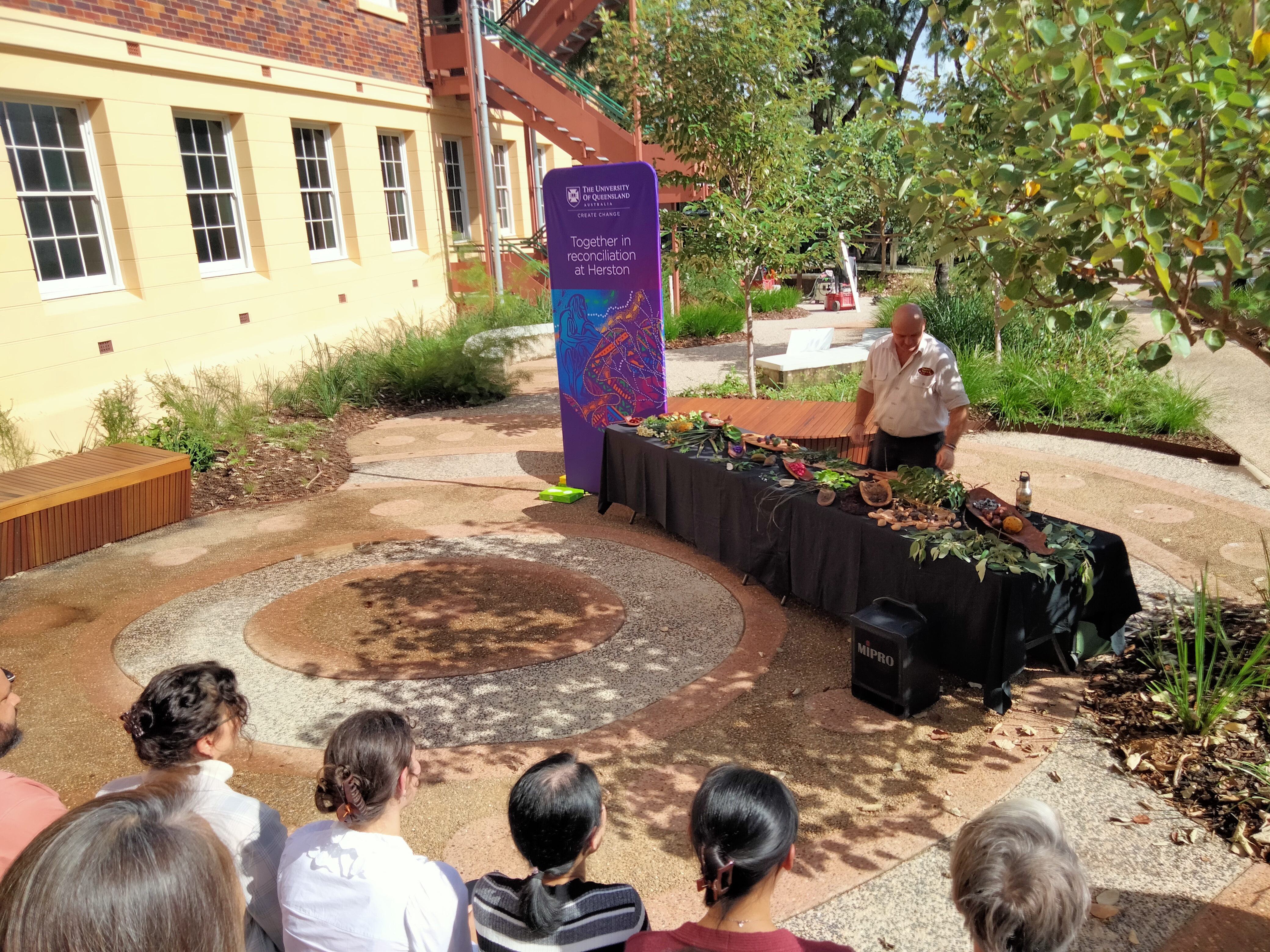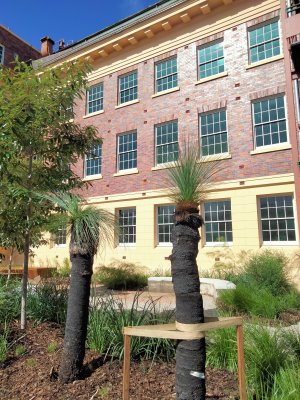Indigenous heritage and flora flourishing in University of Queensland Reconciliation Garden
A new garden at the University of Queensland’s Herston campus is growing a connection between staff, students and visitors with Australia’s Indigenous culture and history.
The Reconciliation Garden, near the Mayne Medical building, offers a place for people to be immersed in Indigenous and Aboriginal and Torres Strait Island heritage and flora.
Francis Nona from the UQ Reconciliation Garden Steering Committee said the space should be somewhere to reflect, as well as a setting for learning and teaching.
“This place should make Aboriginal and Torres Strait Islander people feel acknowledged,” he said.
“To me, this garden represents the resilience and connection that Indigenous Australians have with the lands and seas we now call Australia.”
The garden was the idea of UQ School of Public Health staff, with the garden committee advised by traditional Yuggera custodian Gaja Kerry Charlton and Elder Carmel Schlege.
The project was designed by landscape architect and Saltwater Budawang (Yuin) woman Kaylie Salvatori, in consultation with the local Indigenous community.
Traditional Owners carried out a Smoking Ceremony before work began on the garden, which was constructed by Indigenous business Multhana Property Services, supported by Arcadia Landscape Architects.
Committee member Dr Preetha Thomas said Indigenous plants used in the garden were chosen for their healing and food properties.
“I feel privileged to learn from Aboriginal Elders and help create a culturally safe and inclusive space that celebrates Indigenous people and recognises their vast knowledge,” Dr Thomas said.
 The circular garden is designed in the shape of a native beehive, creating an inviting meeting place.
The circular garden is designed in the shape of a native beehive, creating an inviting meeting place.
There are several large Grass Trees in the garden, along with dozens of other plants which are pollinated by native bees.
The site is now a living contribution to the UQ Reconciliation Action Plan.
The Reconciliation Garden Steering Committee includes Traditional Owners and UQ staff from the Aboriginal and Torres Strait Islander Studies Unit and School of Public Health.
The project won the Spirit of Reconciliation Award at the 2021 Faculty of Medicine Awards.

